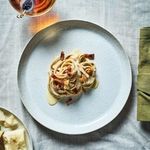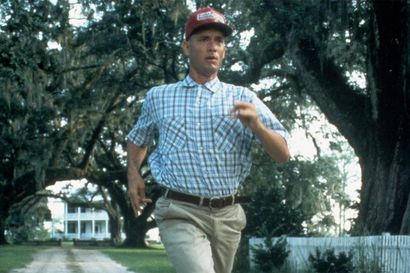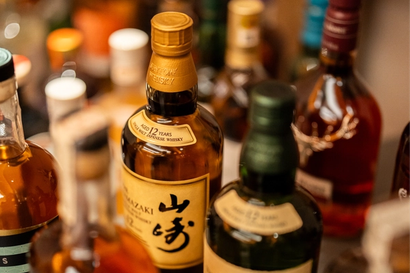Inside the mind of Albert Adrià, the world's most important chef
The seminal creator talks about the restaurant that made him, finding balance in his life, and what he’s really working towards…
There’s a small cadre of chefs – and Albert Adrià is, with little doubt, one of them – who look beyond the playbook and, instead, redefine it, setting new borders and frameworks for the world to observe, analyse, dissect, appreciate and critique. For more than three decades, Adrià has been steering the direction of the contemporary kitchen, his gee-whizz standard-pushing techniques – spherification, foaming and emulsification among them – birthing facsimiles across the globe, with his remarkable stretch starting when he made his bones on the pastry station at El Bulli, in Roses, Catalonia, before he turbocharged the game in his role as the restaurant’s creative director, a position in which he developed a portfolio of roughly 1,800 dishes from within his genre-bending test kitchen.
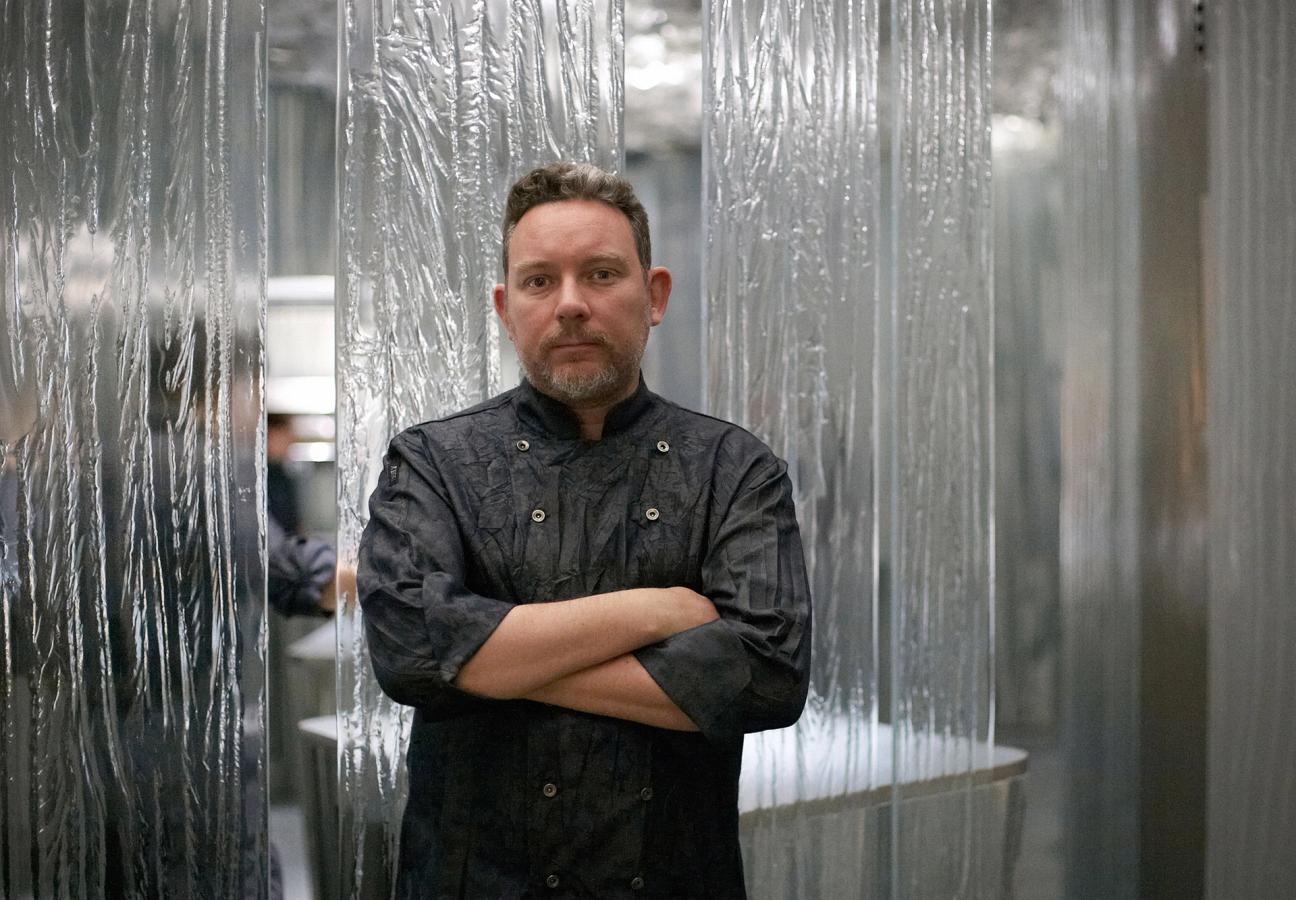
Despite El Bulli’s closure, in 2011, as well as that of El Barri, Adrià’s Barcelona-based restaurant group that once commanded some of Europe’s hottest tables, the 53 year old, who’s widely regarded as the industry’s greatest, still continues to deliver knockout blows. Abroad, Cakes & Bubbles, his first UK venture, one dedicated to the chemistry-precise discipline of desserts, has been a staple destination in a city known for its revolving door of restaurants. At Enigma, the flagship of El Barri and the sole destination in the collection to have stayed open, remains committed to turning the dial on what food can be, with dishes – which may involve red plum soaked in umeshu liqueur, dehydrated and rehydrated again; or a nigiri made of almond and bottarga – appearing more like concepts than actual platings.
Of late, Adrià has turned his attention to reworking dried pasta, partnering with Atavi to create a small edit of tagliatelle packs, an effort that has seen the chef and the food label build on the traditional combination of wheat and water by imbuing it with a selection of techniques – including smoking, roasting and fermenting – to create three new versions of the dish, labelled Sourdough, Umami and Smoked.
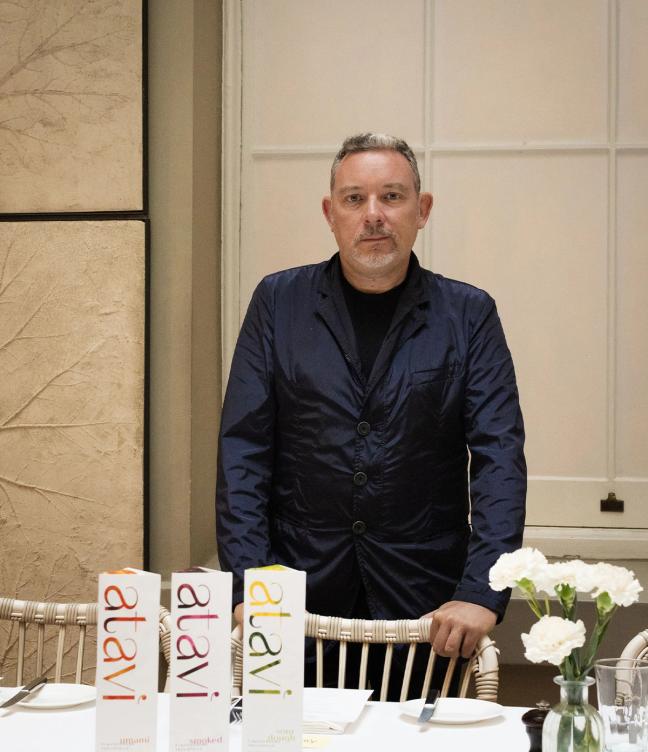
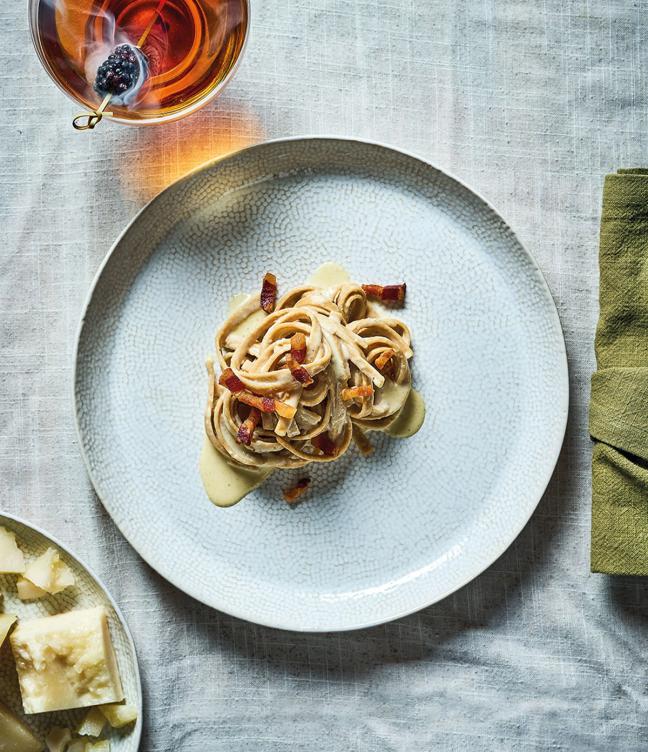
On the release of his latest creation, we take a seat with Adrià to discuss his current projects, what ambition looks like for him these days, and the pressure of perpetual creativity. “We think we still have many things to say,” he says of the task he and his team have charged themselves with.
Even with past success, it’s clear that for one of history’s kitchen heavyweights – one seemingly allergic to stasis – there’s always something that needs to be upended.
GJ: Following the turmoil in the restaurant industry within the past three years, what's your main focus at the moment? Is it Enigma? Or is it on external projects?
AA: The focus is on Enigma – but we are also enlisting in other projects, because I want to open outside Spain. I have a small place, called Cakes & Bubbles, and I'm partner to José Andrés, in a New York Project. But that's all. I don't know where the future is going to take us, but the focus is Enigma – because it's my home, it’s my restaurant. It’s the first time I’m the chef, a restaurant with my name – never before [has this happened].
I've seen a quote of yours that says there’s there’s still a lot to do when it comes to Enigma and that you will try to set a benchmark for gastronomy there. Can you expand on what you mean by that?
We think we still have many things to say. The team changes, there’s a younger team, the times change and gastronomy changes. We believe that there's many new things that we can say. We think we're actually starting to do it now. It's a cycle, like a wheel – because 30 years ago, we talk about [technique]; 20 years ago, we talk about other kitchens in the world, like Chinese, Japanese, Mexican; 10 years ago, we are talking about products. The range is huge; it’s bigger and bigger every day. You mix quality, product, technique and another kitchen’s vision… it’s exciting.
Regarding the external projects, why did you decide to create pastas with Atavi?
Because I love a challenge. And, it was such a big challenge that I just had to take it. One of the nicest challenges I’ve ever had – because it's very difficult to make something different only using wheat and water, with respect to tradition, with respect to the world of pasta after thousands of years. This is the tip of the iceberg – we have more and more things.
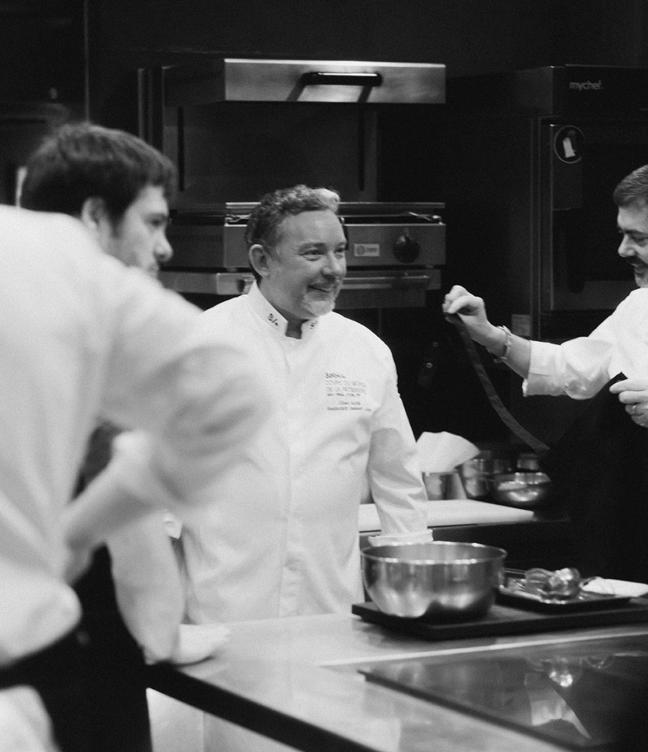
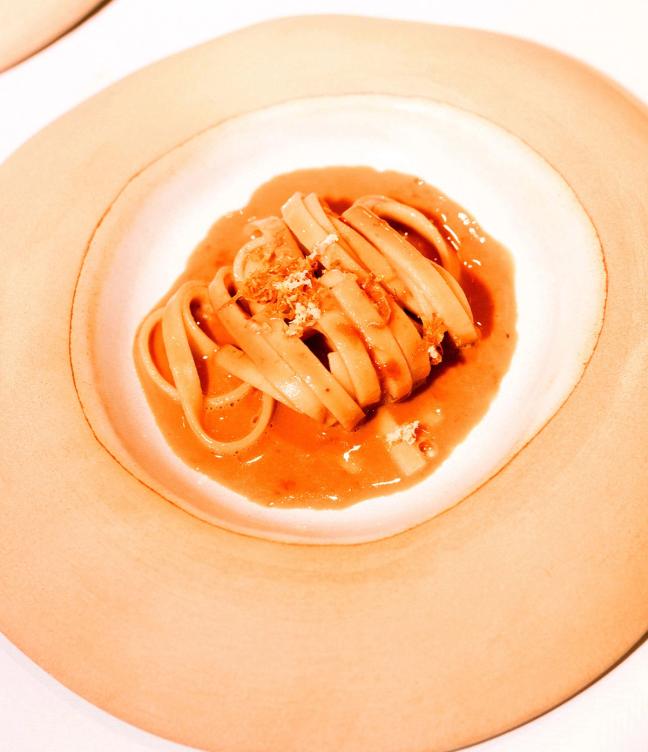
Is this the first time this concept has been presented to you?
First time. When I work in product development, I'm very cold, my team and I are very cold. We need to absorb information. We receive information to learn; that I love.
When you say it's the tip of the iceberg, does that mean there’s more to come with Atavi?
Now, it’s just these three products, but we have many more things to develop that we'll see later on. And, you know, the beautiful thing is that you try – you try, you smell, you decide. We can talk for hours and hours about the pasta, but, finally, when you try, you’re a judge. People like it, they buy; people don’t like it, we close. Like a restaurant.
With social media and the internet, do you think it's more difficult to be creative today – or is it easier?
It’s easy. In 1985, the only way you could learn about the work of another cook is by going to his restaurant and buying a meal, or taking photos with a regular camera, or you have a friend do it. Or you buy a book. Now, with YouTube, the world is yours. One of the problems is that for creative people, it lessens their authorship. Information travels so fast that creativity loses strength. Everything is instant.
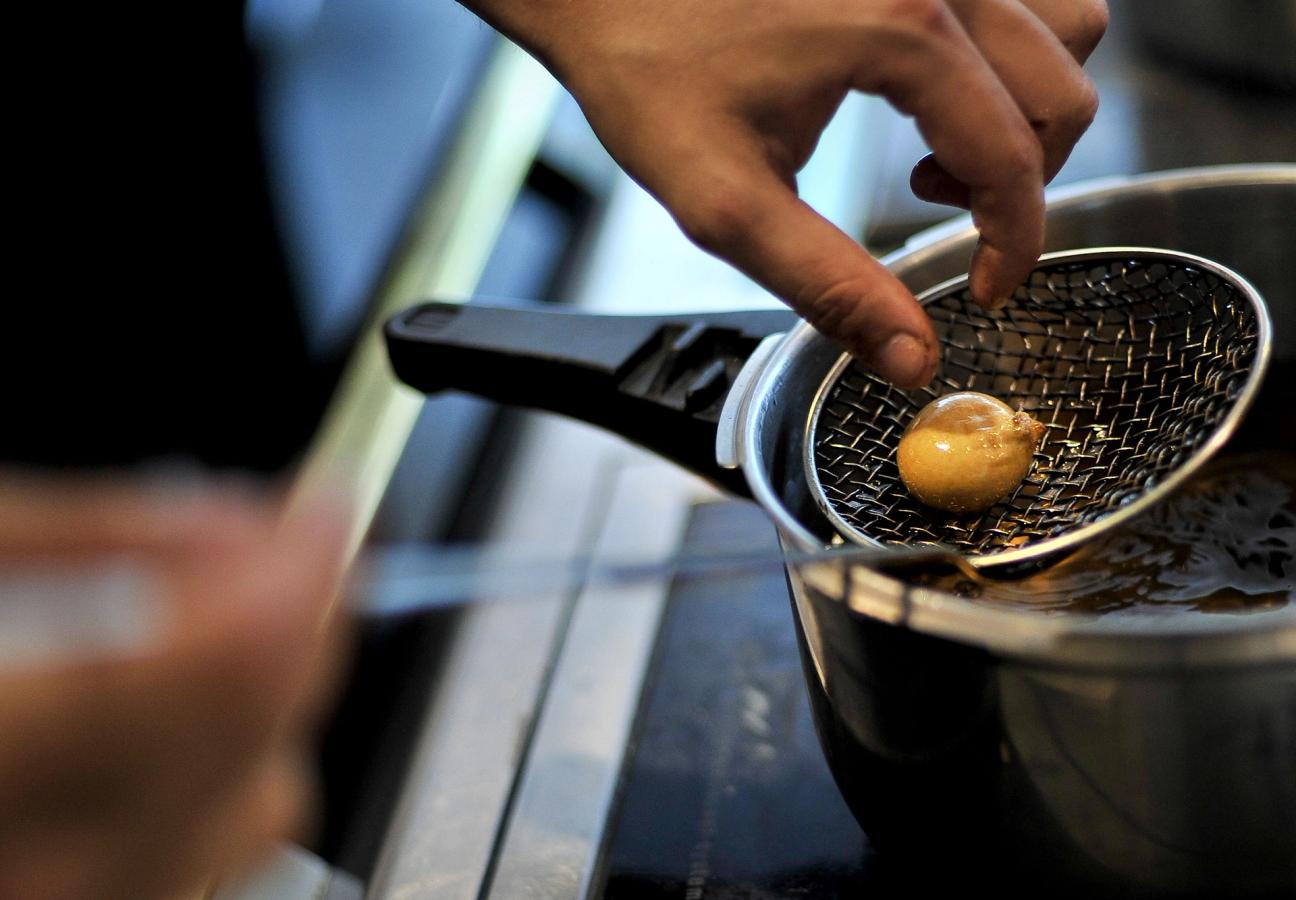
Image: Getty. A picture of spherification, one of the main techniques pioneered by Adrià at El Bulli.
What does ambition and creativity look like for you these days?
You don't wake up in the morning and say, ‘I'm going to be creative today.’ For me, it’s like a stigma. Being uncomfortable is the base of our work. I don't like routine; it’s a problem, eh? I admire the people that can have a routine.
Are you as restless as you were when you were at El Bulli and during the days of El Barri?
Yes, but my physique doesn't go along… my mentality is younger.
Have you found balance in your life now?
With life, with profession, with family… I’m balanced. I was searching all my life for this balance.
'The problem with creativity is there’s no final, no end. It's like a storm in your head; a destroyer'
Earlier this year, an El País headline recently quoted Ferran Adrià [Albert’s brother, and the head chef of El Bulli], who said that he could have hit rock bottom if El Bulli had stayed open. Is this something that you felt could have happened to yourself?
It would have been destroyed. When Ferran told me that we were going to close… we needed to kill the beast… Ferran is very intelligent in this case.
Do you still feel that pressure of constant creativity or not?
Of course, of course. The problem with creativity is there’s no final, no end. It's like a storm in your head; a destroyer. People today talk about creativity like a candy. When we talk about creativity, you need three things: money, money, money. With money, you buy the team; with money, you buy the place; with money, you buy the time.
When you say creativity is like a storm in your head, is it both a good thing and a bad thing?
I'm really creative when I have €2m in my bank [laughs]. I was one of the first chefs to be paid to be purely creative; not to create new dishes, but new ways. Now, you have 100 cooks thinking only in new ways. Test kitchens are normal now – before, they weren’t. People believe my brother is crazy when he said he had three people only thinking in new ways. It wasn’t normal. Who pays for these people?
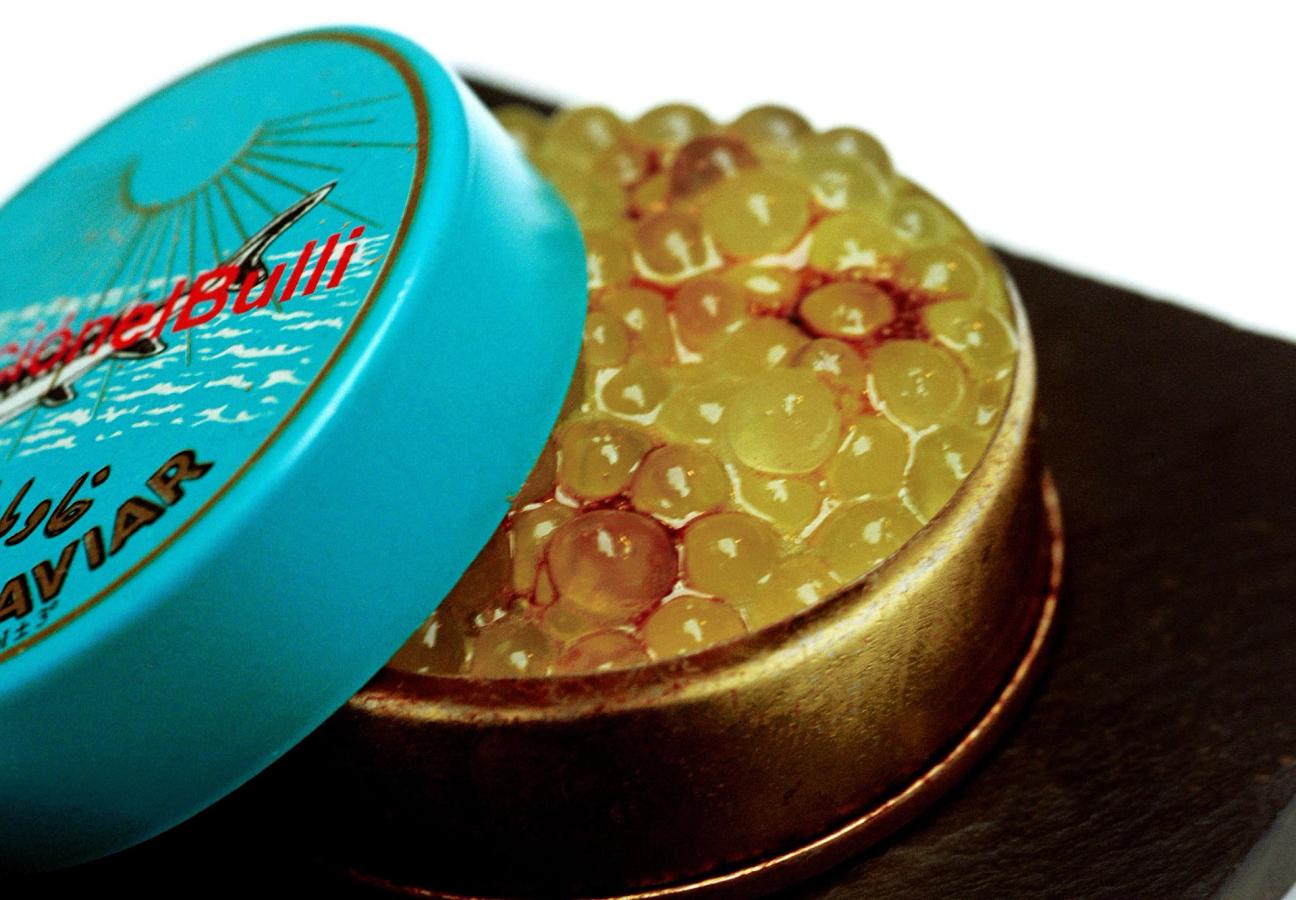
Image: Getty. Spherified melon caviar, one of El Bulli's most famous platings.
The British press hasn't covered the opening of El Bulli 1846 [a new museum dedicated to the history of El Bulli] too much –but did you have a role in it?
I’m a partner, because it's a foundation. But, it’s a personal project to my brother for the past 10 years – he keeps everything, he’s like a hoarder. I've broken everything. I broke my papers. I lose my computers and my phones!
Will there come a point when you take yourself away from the kitchen, or, like Juan Mari Arzak [the famed Basque chef who is said to have claimed he wishes to pass away in his restaurant’s kitchen], will you be there forever?
No, no, no. I am working to earn my retirement. I'm thinking every day about when I can have a beautiful house with my dog and my swimming pool. The south of Spain or the Maldives or China. The world is my home – and my future is today.
Want more culinary content? These are London’s best special-occasion restaurants…
Become a Gentleman’s Journal member. Find out more here.
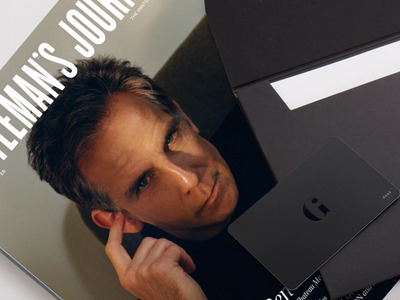
Become a Gentleman’s Journal Member?
Like the Gentleman’s Journal? Why not join the Clubhouse, a special kind of private club where members receive offers and experiences from hand-picked, premium brands. You will also receive invites to exclusive events, the quarterly print magazine delivered directly to your door and your own membership card.
